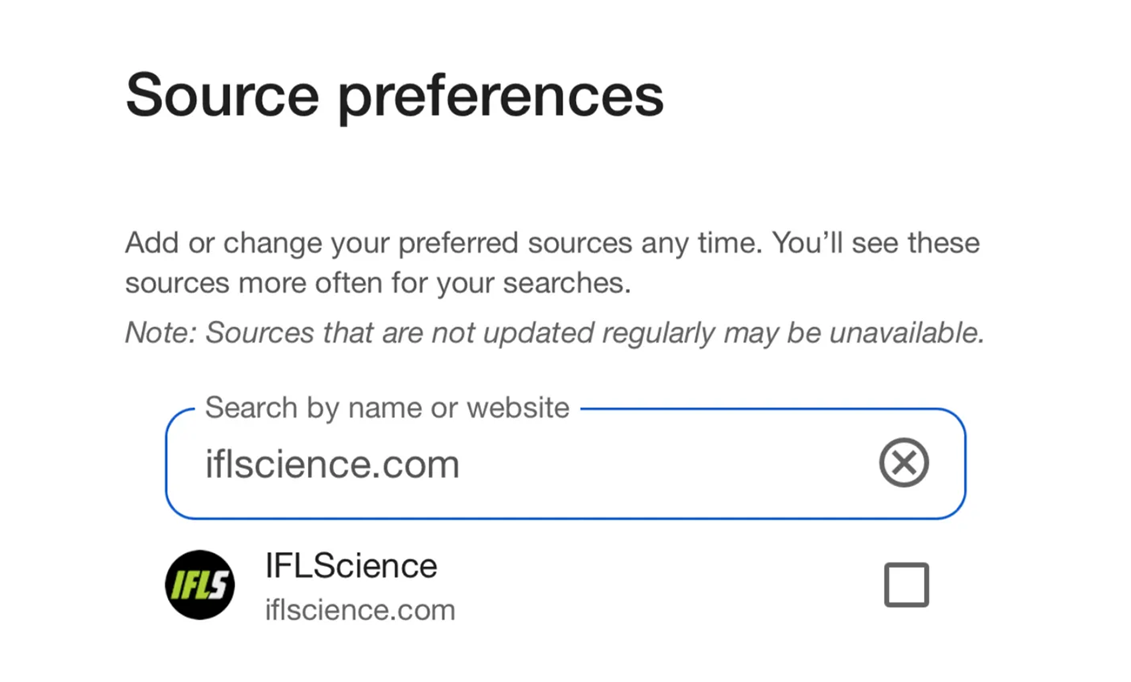Google has just made it easier to see your favorite media outlets more often. If you’re a fan of science – from the weird to the wild, ridiculous, and deadly serious – we invite you to add IFLScience to your favorite publishers: all you have to do is click right here and select the box. It’s currently only available in the US and India, although it’s expected to roll out to other countries soon (we’ll keep you posted).
The rest of this article is behind a paywall. Please sign in or subscribe to access the full content.
The search engine’s new “Preferred Sources” feature lets you customize your feed on Google’s Top Stories to match your interests. If you want more science news and less of the usual fluff, this feature makes it easy to tailor your Google newsfeed to your tastes and needs.
Another way to get involved is by following these four simple steps:
- Search for any topic that’s in the news.
- Click on the icon to the right of “Top Stories.”
- Type “IFLScience” or “iflscience.com” in the search bar.
- Check the box to the right of IFLScience.

Go on, click the box.
Image credit: screenshot of Google
Here’s why it matters for you: With so much information competing for attention online, being able to prioritize the sources you trust ensures you get accurate and interesting news, instead of being buried under irrelevant or repetitive headlines. It helps readers stay up to date with science breakthroughs, discoveries, and fascinating stories that might otherwise be missed.
It’s also important for smaller publishers like us. The “Preferred Sources” feature gives niche outlets a chance to reach readers who genuinely care about quality science reporting, helping us grow our audience without relying solely on shadowy algorithms or paid promotions.
In a media landscape facing a bunch of new challenges – like AI-generated content, algorithm-driven echo chambers, decreasing traffic from social media platforms, and declining trust in news – it’s never been more important to support websites that you enjoy, trust, and rely on for accurate, engaging, and thoughtfully curated science reporting.
All in all, it means you have more control over what you see, and we get the opportunity to keep producing the content you love (and we love creating).
Another great way to support us is by subscribing to our membership platform. It gives you access to even more high-quality content and allows us to continue delivering stories that matter, free from external pressures.
Source Link: How To Get More IFLScience: Add Us As A “Preferred Source" On Google